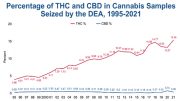Be well informed about teens’ exposure to substances on social media
In a recent national survey of teens, more than half reported that nicotine, alcohol, and other drugs are highly prevalent and accessible in teens’ lives. They also indicated that parents have the largest influence over their decisions and actions. Teens look to their parents and other trusted adults for accurate information and guidance about addiction and substance use.
These trends provide valuable insight and underscore the importance of talking with teens early and having open and honest conversations with them about substance use. That includes knowing about the types of addictive substances that are available to and popular among teens and how these substances are portrayed in the media and on social media. A recent survey found that one in three teens gets information about addictive substances from unreliable sources, such as other teens, the internet, or social media.
Approximately 90% of teens report using social media. While there are benefits associated with social media, there are also risks related to inaccurate or misleading information about addictive substances. For example, social media glamorizes and normalizes substance use. Content of public figures and celebrities using addictive substances is plentiful and may seem subjectively attractive or ‘cool’ to teens. Content of friends and family members using addictive substances may deceptively portray these behaviors as more common and acceptable than they actually are. Further, social media is often used as a marketing tool, such as by alcohol advertisers who use social media to target certain people while simultaneously portraying alcohol use as a social norm.
Social media also increases access to illicit drugs. People who sell illicit drugs on social media use imagery and hashtags to engage interested buyers and anonymous messaging apps to complete illicit transactions. Police and drug enforcement officials are finding that that these substances are often counterfeit or contaminated. Sometimes with deadly amounts of opioids.
There are things parents can do! Use the topic of social media to talk to your children about the danger of using drugs, especially those not prescribed to the user. The Partnership to End Addiction offers additional recommendations for parents:
- Be well informed about teens’ exposure to substances.
- Have frequent, open, and honest conversations with teens.
- Set clear and fair rules and stick to them.
- Seek help early for signs of risk.
Contributed by Maile Panerio-Langer, The Milton Coalition. For more information about talking to children of all ages, visit www.drugfree.org. For information about local resources, visit www.milton-coalition.org






Be the first to comment on "Be well informed about teens’ exposure to substances on social media"